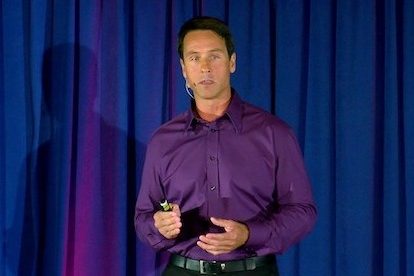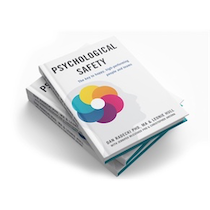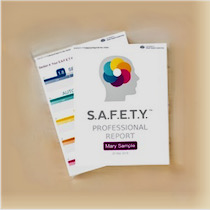Both academic and industry research suggest that paying close attention to psychological safety has tangible benefits, not just to personal health and wellbeing, but to workplace productivity and performance.
The term Psychological safety was originally coined by Harvard Business School professor Amy Edmondson whose research focused on psychological safety as it applies to work teams. In this context Edmondson defined psychological safety as:
“a belief that one will not be punished or humiliated for speaking up with ideas, questions,
concerns or mistakes, and that the team is safe for interpersonal risk taking.”
Google’s research on it’s high-performing teams (Project Aristotle) revealed the most agile and high-performing teams were those with a high sense of Psychological Safety. Members of these teams felt a sense of trust and security within the team which enabled them to speak up and be themselves, without fear of retribution or ridicule. This led to a more engaged and collaborative team and hence a more successful business unit.
Until recently, we haven’t had the knowledge or tools to unpack Psychological Safety. The logical starting place is its root – the brain – yet we lacked the ability to measure, track or implement strategies for something so subjective and invisible. Thanks to recent breakthroughs in neuroscience we are now gaining this visibility with the research revealing:
- The importance of Psychological Safety for personal mental and physical health, engagement and productivity, and
- The brain’s social needs that determine and impact our sense of Psychological Safety
Your brain is hardwired for safety …
As society has evolved, our brain has become acutely sensitive to the psychological threats you experience in your social interactions—things like attitudes, behaviors, and perceived motivations. So how do you identify and manage the triggers that threaten your psychological safety and hijack your brain?
Introducing the S.A.F.E.T.Y.™ Model
Based on the very latest neuroscience research, this model describes some of the most important social motivators of human behavior. Psychological Safety explains how to implement it in your life and your workplace, to reap the benefits of increased productivity and personal well-being.
S.A.F.E.T.Y.™ is your guide to navigating key scenarios for maximum benefit, from onboarding and corporate restructures to brainstorming sessions and reward programs. This revolutionary book offers actionable solutions to key questions that may be holding you (and your workplace team) back from fulfilling your potential:
Why am I so anxious and stressed?
Why do I continue to do things I don’t want to do?
Why do I care so much about what others think of me?
Why do I self-sabotage?
And the most vital question of all:
Why can’t I change?
Authors

Dan Radecki
Co-founder & Chief Scientific Officer, ABL

Leonie Hull
Co-founder & CEO, ABL

Jennifer McCusker
Advisory Board Member, ABL

Christopher Ancona
Technology & Data Analytics, ABL













